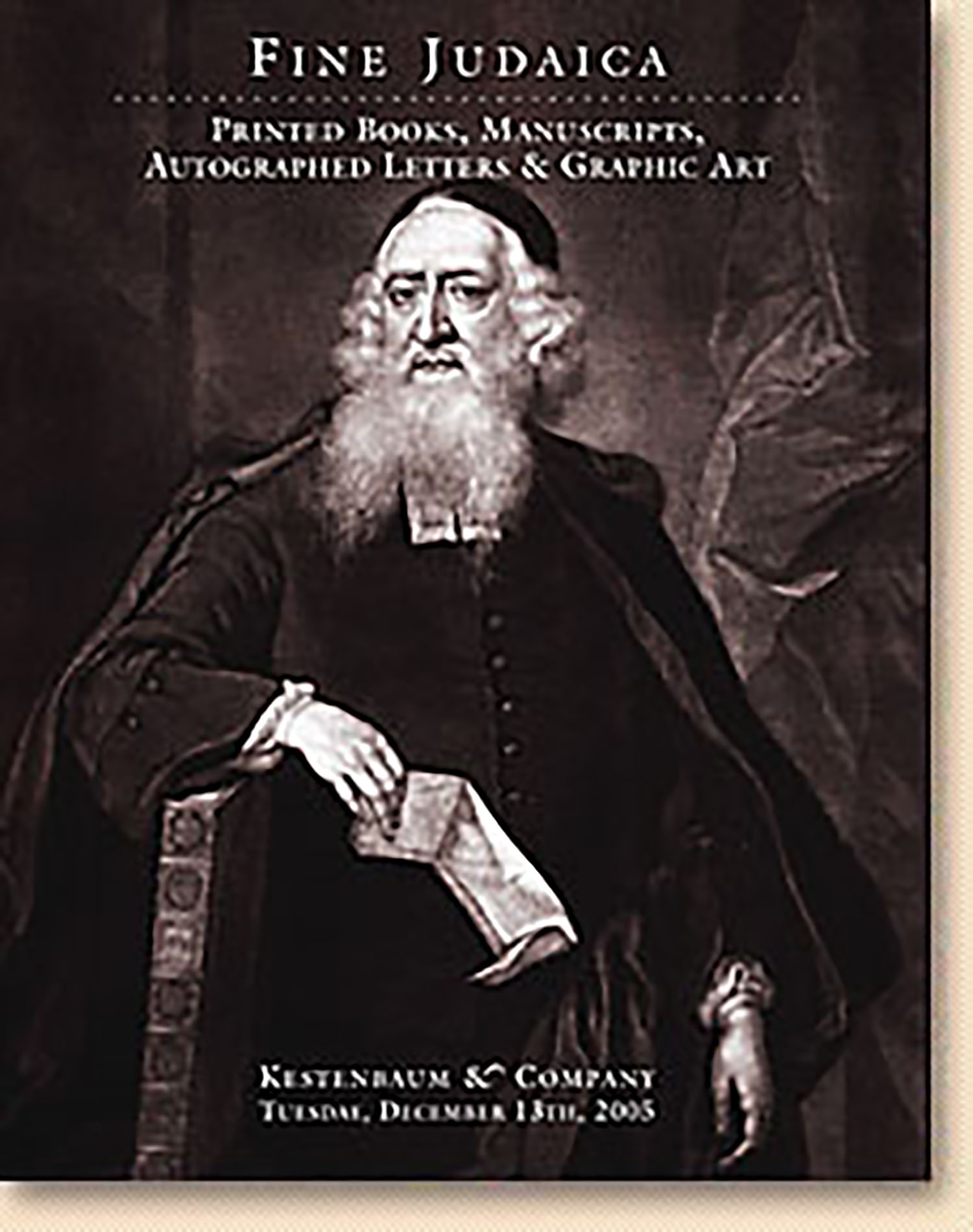DELMEDIGO, ELIJAH BEN MOSES.

AUCTION 31 |
Tuesday, December 13th,
2005 at 1:00
Fine Judaica: Hebrew and Other Printed Books
Lot 104
DELMEDIGO, ELIJAH BEN MOSES.
Basle (i.e. Hanau): n.p
Est: $2,000 - $3,000
PRICE REALIZED $2,000
Philosophy versus Kabbalah: The Delmedigo Legacy.
An important collection of treatises edited by Samuel Aschkenazi, including Elijah Delmedigo’s Bechinath ha-Dath - a reworking of Averroes’ Fasl al-Makl on the contradictory relationship between religious faith and philosophic reasoning. Elijah’s attack on the Kabbalah was refuted by his great-grandson Joseph Delmedigo in the part entitled Matzreph le-Chochmah.
The Delmedigos were an Aschkenazic family of German descent that settled on the isle of Crete at the end of the 14th-century. Elijah Delmedigo (c.1460-1497) of Candia (today Iraklion), was a staunch rationalist in the Averroist tradition, as witnessed in his brief but biting tract Bechinath ha-Dath, an attack on the antiquity of the Kabbalah.
His great-grandson, Joseph Solomon Delmedigo, or as he is known in Hebrew, YaSHaR (Yosef Shelomo Rophe) of Candia (1591-1655), was a figure of such complexity that he continues to tantalize scholars to this day. Prof. Isaac Barzilay has argued that YaSHaR was anything but the sincere devotee of Kabbalah that he feigns to be. If Barzilay’s portrayal of YaSHaR is accurate, then rather than having turned his back on his illustrious ancestor’s hypercritical rationalism, Yashar merely took it underground, allowing it to metamorphose into a much more sophisticated form. Thus there is much debate whether Matzreph le-Chochmah is truly a refutation of Elijah Delmedigo’s Bechinath ha-Dath and a defense of the Kabbalah, or something other.
Nevertheless, there is no doubt that YaSHaR’s works are one of the most important conduits of the Kabbalah of R. Israel Sarug, an elusive figure who galavanted around Europe. It remains unclear whether Sarug was an authentic disciple of R. Isaac Luria, as he purported to be, or rather the creator of an independent system of Kabbalah. Despite the protests of R. Chaim Cohen of Aleppo, within a single generation an entire Sarugian school of Kabbalah developed, thanks to the prolificity of his Italian disciples, R. Menachem Azariah of Fano, Abraham Herrera Hakohen, and - Joseph Solomon Delmedigo.
See I. Barzilay, Yoseph Shlomo Delmedigo (Yashar of Candia): His Life, Works and Times (Leiden, 1974); JE, Vol. IV, pp. 506-509; EJ, Vol. V, cols. 1477-1481; Vol. XIV, cols. 889-890.
